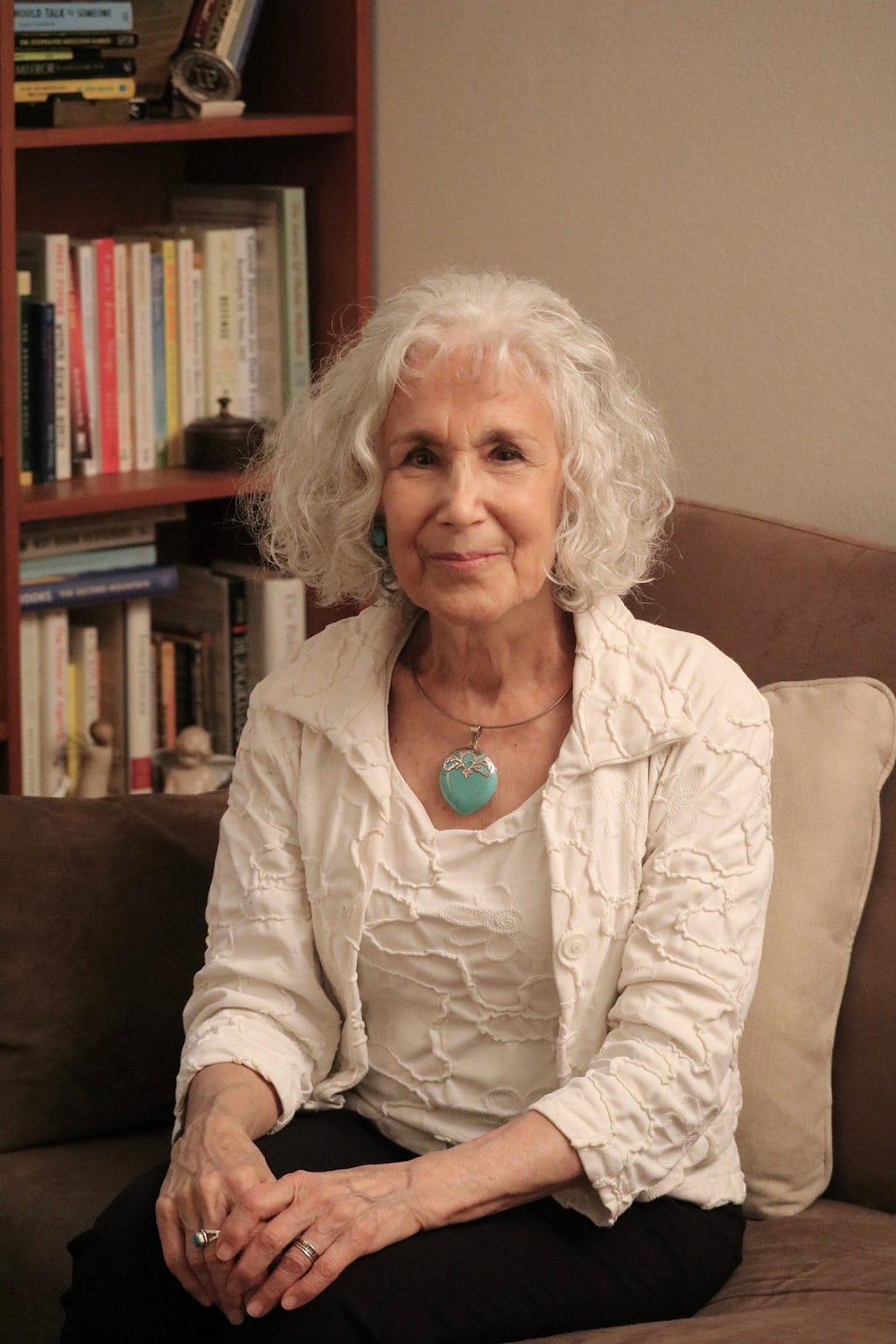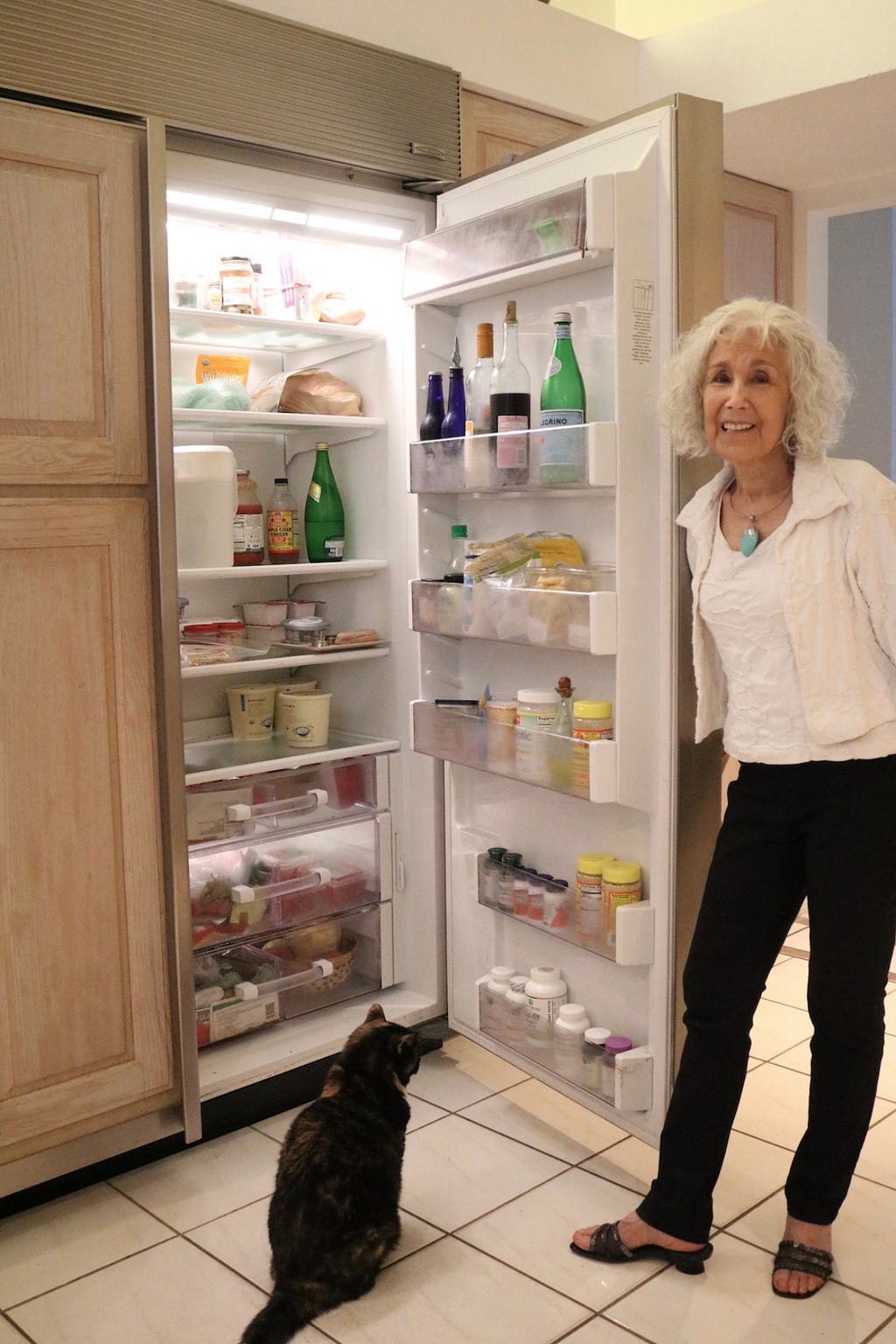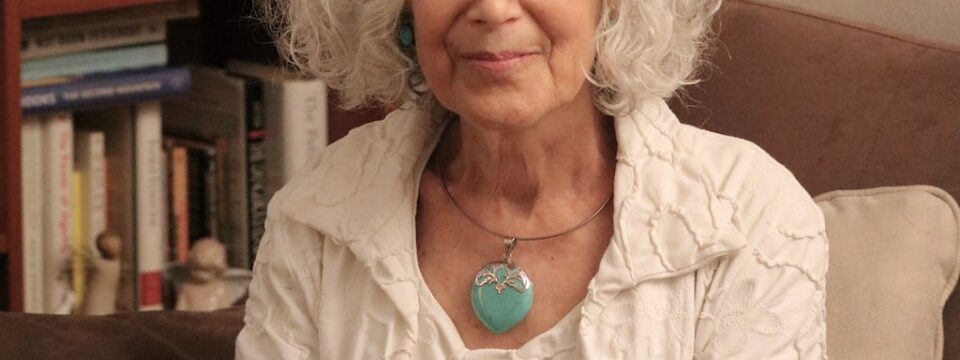
Be non-judgmental and show compassion. Be sensitive to whether and how much the person struggling with an ED wants to talk about it. When they do, tune into when they may be pulling back and don’t push. Just be there to listen and learn about what they’re going through. Frequently tell them you love them no matter what. Funny/sad story: I was trying to talk to my mother about my eating disorder and she said something about my being “bucolic” when she meant “bulimic.” Her not even knowing the correct name of the condition I had didn’t make me want to talk more with her about it.
Eating disorders are complex mental health conditions that affect millions worldwide, transcending age, gender, and cultural boundaries. They are not simply about food but involve a range of psychological, physical, and social issues. Supporting a loved one through this struggle can be challenging, requiring understanding, patience, and knowledge of the right approaches to truly make a difference.
In this series, we aim to shed light on the most effective ways to offer support, understanding, and hope to those battling an eating disorder. We are talking to psychologists, nutritionists, doctors, therapists, and survivors, who can provide valuable perspectives on nurturing recovery, fostering resilience, and promoting healthy relationships with food and body image. As a part of this series, we had the pleasure of interviewing Karen Koenig.
Karen Koenig is a psychotherapist and expert on eating disorders, drawing from both professional experience and personal struggles. At 77, Koenig has been recovered from her own eating disorder for over half her life after battling chronic dieting, binge-eating, emotional eating, and bulimia in her youth.
Her career path was shaped by these challenges. After working in other fields initially, Koenig decided in her late 30s to become a therapist specializing in eating disorders. She has authored eight books on the topic and maintained a private practice, first in Boston and later in Sarasota, Florida.
Through her writings, media interviews, and work with clients over decades, Koenig has emerged as an influential voice advocating for greater understanding, compassion and evidence-based approaches to treating eating disorders. Her insights stemming from lived experience make her a powerful guide for individuals struggling with disordered eating and their loved ones.
Thank you so much for joining us in this interview series. Before we dive into our discussion, our readers would love to “get to know you” a bit better. Can you share with us the backstory about what brought you to your specific career path?
I suffered from chronic dieting, binge-eating and emotional eating in my teens and those plus bulimia in my twenties. I finally turned around my eating after reading Susie Orbach’s groundbreaking book Fat Is A Feminist Issue back in the late 1980s and getting treatment from a therapist. At 77, I’m now fully recovered from my eating disorder for more than half a lifetime!
I worked in different professions until I decided in my late thirties to become a psychotherapist specializing in eating disorders. After I finally received my social work license, I worked in the addictions field, and eventually opened my own practice, first in Boston, MA and later in Sarasota, FL.
Can you please give us your favorite “Life Lesson Quote”? Can you share how that was relevant to you in your life?
“There is a great deal of pain in life
and perhaps the only pain
that can be avoided
is the pain that comes from
trying to avoid pain.” R.D. Laing, psychiatrist
I believe the desire to avoid emotional pain, though totally understandable, is at the root of many of our mental health problems, including eating disorders. I know it caused part of my suffering around food and in other areas of my life, and that accepting pain as inescapable and inevitable was tremendously freeing. After acceptance, the question then becomes, “Do I want pain now or later and what kind of pain (or discomfort) can I endure now to have less of it down the road?”
Are you working on any exciting new projects now? How do you think that will help people?
I’ve outlined a new book, my eighth, and am looking for time to write it. It’s about reversing shame and feeling the emotion of pride. Being pride-based is such a misunderstood concept that it’s imperative for people with EDs to not only understand its importance but to use being pride-based (focusing on pride not shame) to live their best lives.
According to this study cited by the National Association of Anorexia Nervosa and Associated Disorders, at least 30 million people in the U.S. of all ages and genders suffer from an eating disorder. Can you suggest 3–5 reasons why this has become such a critical issue recently?
- We live in the most thin-obsessed, fat-phobic culture in the history of the world. We’re bombarded with the message that thin is good and fat is bad on a micro and macro level, from family members to doctors to social media. We have yet to accept the science-based evidence that pressure to be thin causes disordered eating.
- Instead of looking inward to make food decisions and seeking out best nutritional practices, we rely on false information and what others have to say about body size and weight. We will only resolve eating problems when we are able to trust ourselves with food and commit to making our bodies healthy at whatever size and weight they are. Tik Tok and social media are not the places to seek answers and the medical community needs to stop telling patients to engage in weight-loss dieting.
- Overeating is a by-product of the diet industry telling us to restrict foods. Dieting and deprivation is a major cause of binge-eating which creates weight-cycling. If we hadn’t dieted so much in the past, we wouldn’t be overeating so much now. It’s a function of biology which, of course, we didn’t understand decades ago. Now that we know it, we’re still not getting the word about what’s true.
Based on your insight, what are concrete steps can a) individuals, b) corporations, c) communities and d) leaders do to address the core issues that are leading to this problem?
Individuals can learn intuitive eating and the life skills necessary to live their best lives without having an habitual reliance on food for comfort or excitement. They can stop dieting and learn to make peace with food as well as get their nutritional information from licensed professionals such as registered dieticians, not simply anyone who calls themselves a nutritional counselor. They can tell their doctors that they refuse to go on weight-loss diets, end diet talk, learn to take better care of their bodies, speak out against fat talk and weight stigmatizing, and develop self-compassion and self-love.
Corporations in the food industry can stop marketing non-nutritious food to children, have accurate and easy to read labels on their products, and stop false advertising. They can make healthy foods more affordable for everyone.
Communities can fight to have healthy meals in their schools, teach their children (and other adults) about what weight stigma does to people’s mental health, stop promoting weight-loss dieting and not patronize diet programs in their community, get involved in more parental and family training about nutrition, and demand healthier foods in grocery stores. They can also promote diversity of body size.
Leaders in the medical community can stop promoting weight-loss diets, learn more about the dangers of dieting and the benefits of intuitive eating, monitor their own anti-fat biases which are alive and well in the medical community according to studies, promote body size diversity, and have greater compassion for patients struggling with food and weight issues.
As you know, one of the challenges of an eating disorder is the harmful, and dismissive sentiment of “why can’t you just control yourself?” What do you think needs to be done to make it apparent that an eating disorder is an illness just like heart disease or schizophrenia?
Science needs to do a much better job getting out the word that diets don’t work and are dangerous because they promote overeating and binge-eating which causes weight-cycling which is dangerous to our health. They also need to educate the public about higher weights not being a moral issue, but a medical one, especially in terms of heredity, brain chemistry and what trauma does not only to our minds but to our bodies. We also need to hear the message that self-discipline and self-control don’t work with biological imperatives such as eating and sex. An excellent (humorous) science-based book on this subject is Traci Mann’s Secrets from the Eating Lab.
Here is the main question of our interview. Can you please share with our readers 5 ways to support a loved one who is struggling with an eating disorder? If you can, can you share an example from your own experience?
1 . Be non-judgmental and show compassion. Be sensitive to whether and how much the person struggling with an ED wants to talk about it. When they do, tune into when they may be pulling back and don’t push. Just be there to listen and learn about what they’re going through. Frequently tell them you love them no matter what. Funny/sad story: I was trying to talk to my mother about my eating disorder and she said something about my being “bucolic” when she meant “bulimic.” Her not even knowing the correct name of the condition I had didn’t make me want to talk more with her about it.
2 . Don’t panic and think someone immediately needs treatment for under- or overeating. Alternately, don’t fall into denial and think they’re fine and will get over whatever dysfunctional eating they’re engaged in. Observe until you feel you have a grasp on their issues. I’ve had clients whose parents immediately wanted to hospitalize them if they felt their teenager wasn’t eating enough. Outpatient therapy is a start unless someone is in medical danger. I had one client whose husband ignored her anorexia because he liked that she was losing weight and no longer fat.
3 . Don’t tell the loved one what to do but do ask how you can be helpful. My best friend did this and it made a world of difference. I felt less alone and that I could share this part of myself with someone who would be there for me when I needed her.
4 . Learn about eating disorders. There are many books from the end of the last century through present day that explain binge-eating, anorexia, bulimia, emotional eating, and other EDs. Don’t assume you know what’s going on. Seek out workshops, support groups and legitimate podcasts. There are so many avenues for learning for families and friends of people with EDs. Don’t be frightened. These are treatable issues, but your loved one needs to be in the hands of professionals. You can’t “fix” them alone.
5 . If you’re a parent dealing with a child who has an ED, don’t be afraid to seek out therapy for yourself. A workman at our house, knowing I’m an ED therapist, told me about his teenage daughter who’d stopped eating, and he and his wife went to therapy at my suggestion to help them deal with it. Because they knew what to say/do and not say/do from therapy, their daughter was able to get better quicker.
How do you navigate the balance between offering support and respecting the autonomy of a loved one with an eating disorder?
You navigate by being empathic and tuned into the loved one. Rather than jumping in to share your feelings about their ED, first discuss if it’s alright to talk about it and establish guidelines for discussions. Give them control and let them set the pace and boundaries. For example, one day they may be very open about their struggles and another they may refuse to talk about them and want to be in their room alone.
Is there a message you would like to tell someone who may be reading this, who is currently struggling with an eating disorder?
EDs are treatable, no matter how old you are or how long you’ve had one. I know because I’ve resolved mine with a lot of reading, therapy and learning from missteps and I’ve treated many clients successfully over the decades. EDs are not a moral failing, but are telling you something is not right with your relationship with food and yourself. They’re about so many issues other than food, including trauma, family dysfunction, brain chemistry, heredity, and cultural pressures. The enemy of recovery is shame, so be compassionate about where you are, get help, and don’t stop loving and caring for yourself. And never give up questing for recovery.

In your experience, what are the most effective strategies for building resilience and a positive self-image in individuals recovering from an eating disorder?
People with eating disorders need to gain expertise in these five areas to grow an empowered self:
1. Learning effective life skills, such as emotional regulation, goal-setting, problem-solving, relationship building/maintaining, physical self-care, balancing work and play, and critical thinking.
2. Resolving underlying or ongoing trauma issues, including ending and/or not engaging in abusive relationships.
3. Learning how to be comfortable with being both independent and dependent and developing other personality traits that are beneficial and not destructive.
4. Resolving intrapsychic issues about self-esteem, self-worth, deservedness and self-image.
5. Learning and practicing constructive self-talk about eating, food, body size and appearance to increase pride and reduce shame. Positive body talk is key to building resilience and holding yourself in high regard.
What are your favorite books, podcasts, or resources that have helped people with this struggle? Can you explain why you like them?
My favorite book is the revolutionary Fat Is a Feminist Issue by Susie Orbach and I found all the books written by Geneen Roth incredibly valuable. They’re humorous and full of wisdom. These books are all groundbreaking and give an in-depth view of the causes of and approaches to recover from EDs. They may be old but they’re classics in the field and have survived all these decades because of what they have to offer. ED books for patients and loved ones can be found on Gurze-Salucore’s EdCatalogue online.
You are a person of great influence. If you could inspire a movement that would bring the most amount of good to the largest amount of people, what would that be? You never know what your idea can trigger. 🙂
I would start a movement for people and our culture on how to be pride-based, not shame-based, as we are now. It would teach people the importance of pride as an emotion, so they would know it’s okay to feel proud and focus on what we’re proud of, not (as is current) what we’re ashamed of. We’re always talking about what we did wrong, not what we do right. I rarely go through a session with clients without asking them about something they’ve done to be proud of, even if it means having eaten all but one cookie in the bag and then throwing that cookie away. We don’t understand the true joyous gift of pride and that’s too bad because it could be the key ingredient in turning around not only EDs but many of our mental and physical health woes.
How can our readers continue to follow your work online?
Readers can sign up for my twice-weekly blogs at https://www.karenrkoenig.com/blog and join my Facebook “normal” eating page at https://www.facebook.com/normaleatingwithkarenrkoenig/. I also can be found on Linked In and at the NY Journal of Books where I write non-fiction book reviews.
Thank you so much for these insights! This was so inspiring!
Karen Koenig On How To Support A Loved One Who Is Struggling With An Eating Disorder was originally published in Authority Magazine on Medium, where people are continuing the conversation by highlighting and responding to this story.
